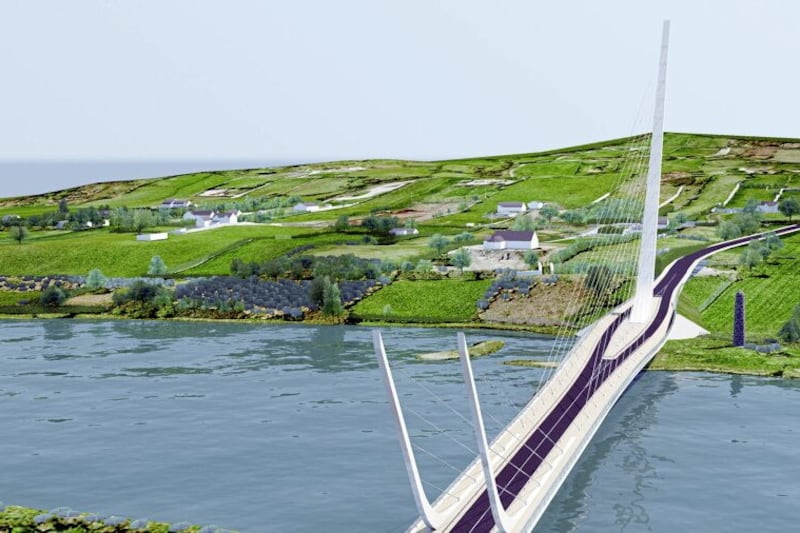Confirmation that the tender process has finally begun for a cross-border bridge over Carlingford Lough, linking counties Down and Louth, deserves to be strongly welcomed for symbolic, practical and above all economic reasons.
The Narrow Water scheme has been under discussion since it was first proposed by visionary campaigners more than half a century ago as a key aspect of the development of Ireland's east coast.
A construction stretching barely 300m, removing the need for a 20 mile round trip via congested Newry, has always had the potential to open up the south Down and north Louth districts to a major tourist and business market, allowing full access to the historic Mourne and Cooley regions.
The Troubles, and the IRA's 1979 horrific Narrow Water bombing, initially sidelined the project, but the opportunities in the wake of the Good Friday Agreement brought it back to the top of the agenda ten years ago.
Although full grants were readily available through the European Union, with assistance also lined up in Belfast and Dublin, delays followed as a number of unionists voiced small minded objections to the basic concept of improved north/south links.
Estimated costs subsequently rose, the Brexit debacle removed the prospect of EU cash, and the continuing upheavals at Stormont led to fears that the overall Narrow Water plan was in huge doubt.
However, a fresh opening arose through the Irish government's Shared Island Fund and the firm personal commitment of taoiseach Micheál Martin, with Friday's tender announcement representing a vital step forward.
It will be noted that some of the unionists who expressed concern over the cost to tax-payers of a modest investment, which might initially have been as little as £20m, with only a fraction contributed by the UK exchequer, then became enthusiastic supporters of Boris Johnson's ludicrous and swiftly abandoned concept of a bridge between Co Antrim and Scotland carrying a bill of well over £20 bn.
Narrow Water still involves a relatively modest price tag, which could be in the region of £30/£40m and looks like outstanding value for money, but must obviously be properly assessed before final approval arrives.
It is striking in terms of wider perceptions about our overall constitutional future that Stormont may not contribute a penny to such a vital cross border scheme, but there will be widespread gratitude to Mr Martin and the Irish government for their influential role at a crucial stage.





